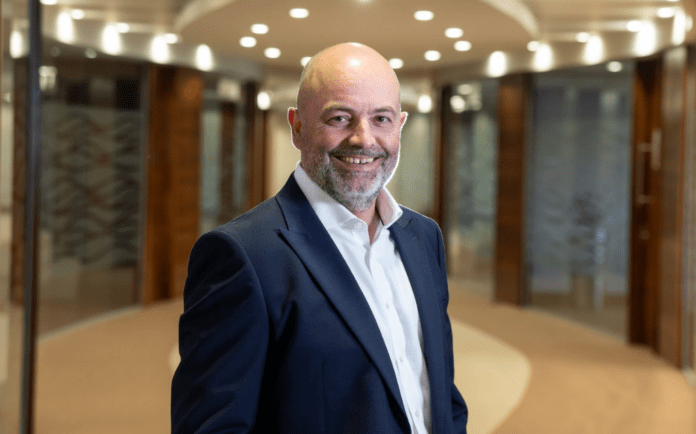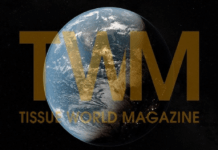
UK-based independent tissue converter Accrol Group has announced plans to build a tissue production plant, which is expected to provide c.40% of the group’s annual tissue requirement.
In its latest strategic review, the company outlined plans for the tissue plant to be operational by mid-2025 at an “optimal location”, while 30% of its energy costs are expected to be delivered through PV solar.
It said it planned to continue its focus on its core toilet and kitchen towel business, its facial and wet wipe business, and develop a licensed business model and grow direct-to-consumer Oceans brand.
Plans to “acquire selectively to strengthen and extend our product offering” were also announced.
Dan Wright, Executive Chairman of Accrol, said: “Over the last four years, Accrol has been transformed as an organisation to one that currently supplies c.21.5% of the UK market’s tissue volumes and has considerable further capacity.
“Our state-of-the-art businesses are in an incredibly strong position to benefit in a private label market, which is growing rapidly and significantly.
“Our customer base is strong and varied and the ability to pass-on cost increases swiftly has been evidenced in the group’s half year results.”
In the strategic review, the company said it anticipated benefits of the tissue mill will include reduced volatility in tissue input costs for the UK tissue conversion business, enhanced security and visibility of tissue supply, which will reduce working capital requirements in the UK tissue conversion business.
It added: “Even prior to the war in Ukraine, the UK has seen a long-term trend of energy cost inflation, rising from an average of 8p per KW/Hr in 2011 to 14p in 2021 and, subsequent to the war, in excess of 60p.
“We anticipate that the mill will operate, crucially for the duration of its life, with an energy cost that is lower than levels seen in the UK prior to the war in the Ukraine.”
The company also said its aim was to “build a diversified group of size and scale, better positioned to manage external risks and to capture the growing opportunity within the private label household and personal hygiene market”.
By building “a sustainable paper mill” it would be “entering a period in which the benefits of the substantial investments made into the group’s capacity, efficiency and routes to market will become much clearer”.
In 2017, Accrol’s total addressable market in the UK was worth £1.7bn, of which private label products represented 47%.
Today, it said the market is worth £2.5bn, of which private label products represent 54%.
The company said: “Although a good proportion of this growth has been driven by rising input costs, over more recent years, the shift towards private label products, Accrol’s core strength has been more consistent with every indication pointing to a continuation of this trend.”
While the company has implemented price hikes, it said that “price rises alone cannot be the whole solution, especially if the current inflationary environment begins to ease”.
“We need to maintain the price leadership that our customers value, whilst also reducing our internal risk profile.
“We have long believed that securing our own paper mill capacity is critical to achieving this outcome and our plans for a sustainable mill solution have advanced greatly in recent months.
“However, identifying and securing the right long-term solution for each key element on the project takes time and we will announce key milestones in the project as they are achieved.”
Accrol Group now operates from six manufacturing sites including four in Lancashire, which together supply c.21.5% (volume) of the UK tissue market valued at c£2.5bn at retail sales value.




























